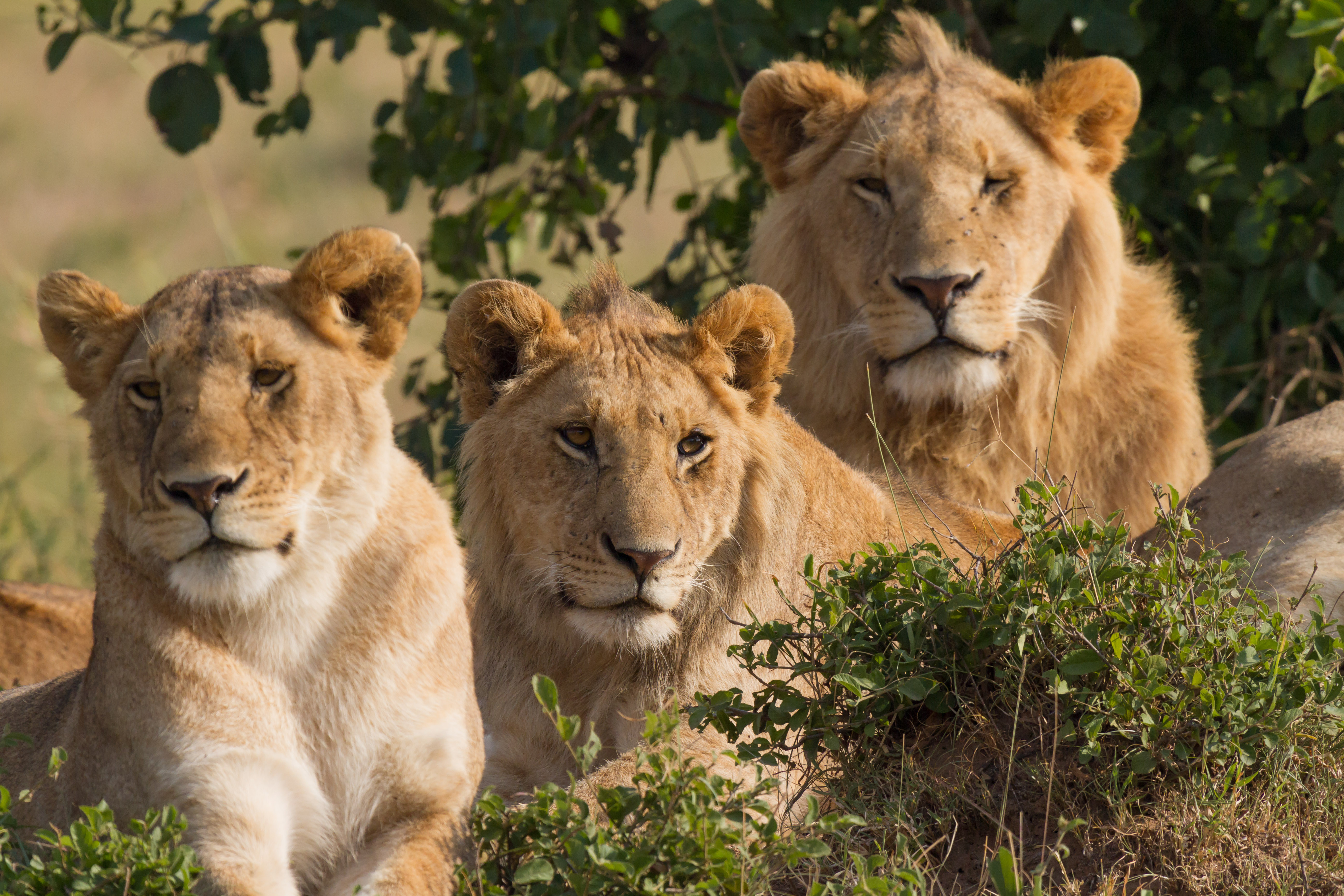In a recent study conducted by wildlife ecologist Jake Goheen and his colleagues at the University of Wyoming and the Ol Pejeta Conservancy in Kenya, the intricate connections within the African savanna’s ecosystem were unveiled. The research focused on the impact of the invasion of big-headed ants (Pheidole megacephala) on the food web, leading to unexpected consequences for the top predator, lions.
Pheidole megacephala commonly known as the big-headed ant, is a globally distributed species recognized for its distinctive characteristics. This ant species exhibits a striking size polymorphism within its colonies, featuring major workers with disproportionately large heads compared to their minor counterparts. This adaptation allows for specialization in various tasks within the colony, with major workers often taking on roles such as defense and foraging. Invasive populations of these ants can outcompete and displace native ant species, altering local ecosystems. Known for their adaptability, Pheidole megacephala colonies can thrive in diverse habitats, from urban areas to forests. Researchers study this species to understand its behavior and biology, aiding in the development of effective management strategies to mitigate its impact on ecosystems where it has become invasive.
The invasion of big-headed ants resulted in the demise of native acacia ants (genus Crematogaster), which played a crucial role in defending whistling thorn trees against hungry elephants. Normally, these acacia ants would swarm up inside an elephant’s nostrils and deter them from damaging the thorn trees. However, with the invasion eliminating these defenders, elephants freely ravaged the thorn trees, transforming the landscape by opening up the grassland.
This alteration in the environment had a cascading effect on the lions’ hunting behavior. The reduction in tree cover made it challenging for lions to pursue their preferred prey, zebras. Instead, the lions shifted their focus to buffalo, a riskier but more accessible target in the changed terrain.
To understand the extent of these changes, the researchers tracked lionesses in the region, collaring them to monitor their activities and kills. They also established experimental plots to observe areas invaded by big-headed ants compared to those where native ants still thrived.
The findings revealed a significant increase in visibility in areas affected by big-headed ants. Lions in these open spaces had a higher chance of spotting prey from a distance. Consequently, the success rate of lion kills on zebras declined when visibility increased.
Over the three-year study period, the lionesses’ diet underwent a transformation. Zebra kills dropped from 67 percent to 42 percent, while buffalo kills rose from zero to 42 percent. Despite the change in prey, the lions faced new challenges, as buffalos are formidable opponents and hunting them posed a greater risk of injury.
This study emphasizes the interconnectedness of species in an ecosystem and highlights the far-reaching consequences of disrupting even seemingly insignificant mutual relationships. It serves as a reminder for ecologists to explore similar relationships in different ecosystems, as the consequences of such disruptions can be unexpected and indirect, ultimately influencing the balance of entire communities.
After studying ecology in AP Biology, I learned how devastating a alter in the food chain/web can be. I learned how interconnected ecosystems are, with each species playing a crucial role in maintaining balance. The concept of trophic levels and the intricate web of energy transfer underscored the importance of even the smallest organisms. The introduction of invasive species, such as Pheidole megacephala, can disrupt these ecological dynamics. Observing the consequences of these disruptions, especially through altered food chains, highlighted the cascading effects on biodiversity and ecosystem stability. Understanding the interconnectedness of species in an ecosystem emphasized the need for conservation efforts and sustainable practices. The lessons from studying ecology in AP Biology not only deepened my appreciation for the complexity of nature but also underscored the responsibility we have in preserving and respecting the delicate balance that sustains life on Earth.
I personally believe that we must take more precautions when traveling to foreign places. I remember when I was in the Galapagos Islands with the school; there were checkpoints at each island and at the airport where they would search your bag for species. You couldn’t even bring a single rock to a different island! As a society, we should take more precautions like these to prevent further damage to ecosystems. We must take care of the places that we stand on. What do you think?



Leave a Reply